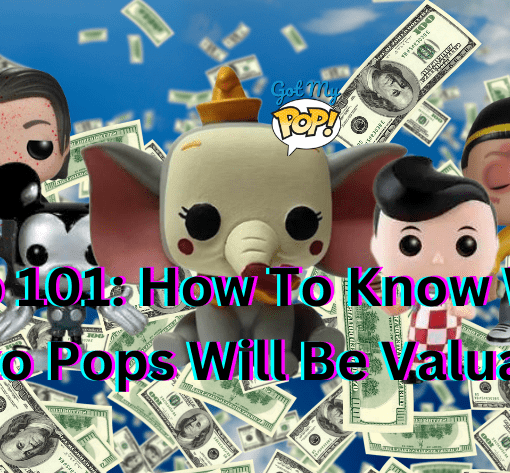
Funko Pop is a popular collectible figurine brand known for its adorable and stylized versions of characters from pop culture franchises. From Disney princesses to Star Wars heroes, the Funko Pop universe is vast and diverse. But how does Funko Pop get licensing to produce figurines of these beloved characters?
In this post let’s dive in and we’ll take a look at the process of how Funko Pop obtains licensing for its products.
- Why Does Funko Need Licensing?
- What’s the Process of Obtaining a License?
- Is Obtaining Licensing Expensive?
- How Many Licenses Does Funko Have?
- What Licenses Does Funko Have?
- What Was The First Licensed Funko Pop?
- Does Funko Pay For Licenses?
- Are Funko Pops Copyrighted?
- How Does Funko Get Licensing?
- Funko Pop’s Licensing Strategies and Relationship Management with Licensors
- Conclusion
Why Does Funko Need Licensing?
First, it’s important to understand that obtaining licensing for a product is a legal process. A company must acquire the rights to use a particular trademark, character, or likeness in order to produce and sell merchandise featuring that property.
In the case of Funko Pop, the company must secure the rights to use the image, likeness, and trademark of a particular character or franchise from the owner of the property.
What’s the Process of Obtaining a License?
The process of obtaining licensing typically begins with negotiations between the company and the owner of the property.
Funko Pop may approach a company or individual who owns the rights to a particular character or franchise and express interest in producing merchandise featuring that property.
The owner of the property will then review the proposal and negotiate the terms of the licensing agreement. This can include things like the length of the license, the types of products that can be produced, and the royalty rate that Funko Pop will pay to the owner of the property.
Once the terms of the agreement have been established, the two parties will sign a licensing contract. This document outlines the rights and responsibilities of both parties, including the terms of the license, the duration of the license, and any other terms that have been agreed upon.
After the contract has been signed, Funko Pop can begin the process of designing and producing the merchandise. This includes creating the sculpts of the characters, determining the paint application, and finalizing the packaging.
The licensor will also have the right to approve the final product before it goes into production.
Is Obtaining Licensing Expensive?
It’s worth noting that obtaining licensing for a property can be a costly and time-consuming process. Additionally, obtaining a license for a property does not guarantee that the merchandise will be successful.
Funko Pop must also consider factors such as consumer demand, market saturation, and competition when deciding which properties to license.
How Many Licenses Does Funko Have?
Funko’s business model is unparalleled in the industry, boasting an impressive catalog of over 1,100 licenses with various companies.
This means that Funko is able to offer an incredibly diverse range of products that cater to every niche and interest.
From iconic franchises like Harry Potter and Star Wars to beloved musicians and athletes, Funko’s licenses allow them to create unique and captivating collectibles that appeal to a wide audience.
With such an extensive and diverse range of licenses, Funko has something for everyone, making it one of the most exciting and dynamic companies in the collectibles market.
What Licenses Does Funko Have?
Currently, Funko has over 150 licenses, including popular brands such as Lucas Films, Marvel, Hasbro, The Walking Dead, Game of Thrones, DC Comics, NBA, Sanrio, and Disney.
These licenses enable Funko to create a wide range of products that appeal to various interests and preferences of their customers.
By collaborating with different companies, Funko can offer a diverse range of collectibles, figurines, and merchandise to the market, catering to the tastes of pop culture enthusiasts and collectors.
What Was The First Licensed Funko Pop?
Funko started its journey by creating the Big Boy bobblehead Wacky Wobbler.
With the acquisition of the license to produce Austin Powers bobbleheads, the company began to expand, and its first Austin Powers Wacky Wobbler sold around 80,000 units.
This initial success set the foundation for Funko’s continued growth, leading to its current position as a prominent figure in the collectibles market.
As of September 28, 2022, the company continues to produce a vast range of licensed products for its customers.
Does Funko Pay For Licenses?
Funko is usually obligated to pay a royalty fee of 15% to 16% according to its licensing contract, which has an impact on its profitability.
This could clarify why Funko’s margins of 38% are similar to those of its competitors, including less agile industry leaders like Hasbro, who have a lower dependence on licensed products.
Are Funko Pops Copyrighted?
All copyright, trademark, trade dress, and other rights in Funko products are owned by Funko, and your use of them is subject to these retained rights.
Additionally, Funko provides various subscription options for its products.
How Does Funko Get Licensing?
Regarding licensing, when it comes to in-house or fan-generated ideas, Funko initiates contact with the intellectual property owner to discuss the possibility of using their characters to create a Pop! figure.
However, if the character already belongs to Funko, such as those from their own Wetmore Forest line, no such contact is necessary.
Funko Pop’s Licensing Strategies and Relationship Management with Licensors
Funko Pop’s extensive catalog of over 1,100 licenses is a testament to the company’s successful licensing strategies.
When it comes to deciding which properties to license, Funko Pop takes into account various factors, including consumer demand, market saturation, and competition.
The company also considers the potential for cross-promotion and synergy with existing licenses.
To manage its relationships with licensors, Funko Pop prioritizes open communication and collaboration. The company involves licensors in the design process and seeks their input and approval on final products.
Funko Pop also ensures that it abides by the terms of licensing agreements and pays the appropriate royalty fees.
By fostering strong relationships with licensors and offering a diverse range of products that cater to various interests, Funko Pop has positioned itself as a leading player in the collectibles market.
Conclusion
Obtaining licensing for a property is a legal process that involves negotiations between the company and the owner of the property, signing a licensing contract, and going through the process of designing and producing the merchandise.
Funko Pop has to consider many factors like consumer demand, market saturation, and competition when deciding which properties to license.
Understanding this process can help fans appreciate the effort and resources that go into creating their favorite Funko Pop figurines.
Let’s continue our Funko journey and find out How to prevent Funko Pops from melting or kickstart your collection with our Funko Pop Guide!
Which fandoms do you like the most? We here at Gotmypop.com are absolutely smitten by Pokemon! Let us know what you’re a fan of in the comments below!










